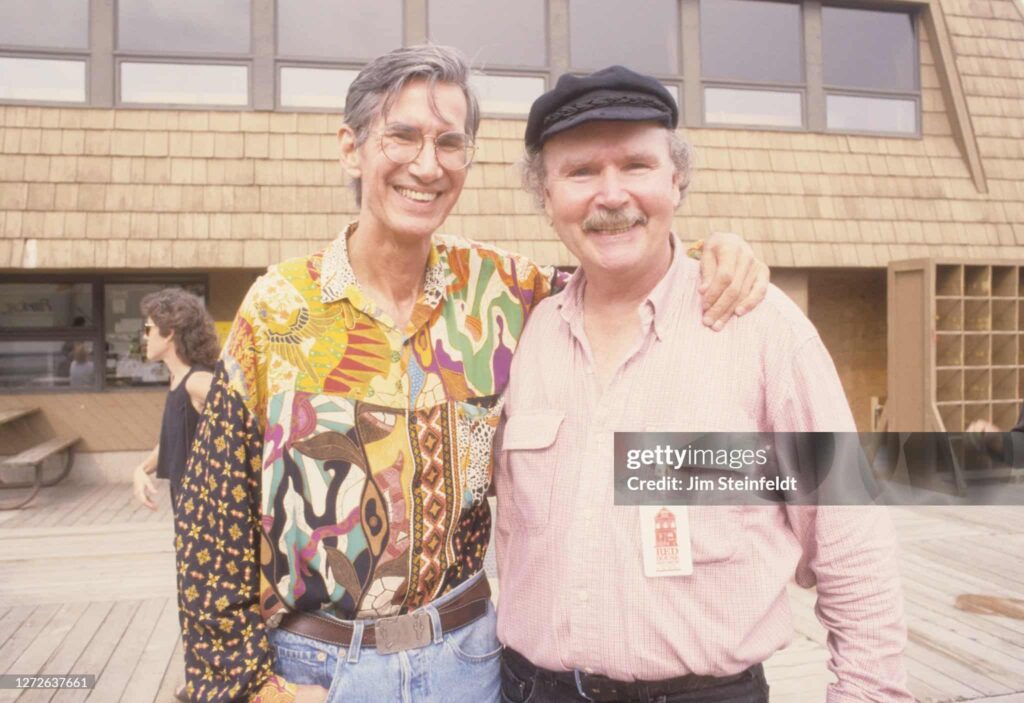
A Prophetic Cry from the Abyss: The Collapsing Lungs of Faith and Hope.
If Nanci Griffith painted sun-drenched, gentle scenes of abiding love, Townes Van Zandt descended into the darkest pits of the American soul. He was a lonesome poet, a street philosopher, and arguably one of the greatest songwriters the folk/country tradition has ever produced. “Lungs” stands as a stark and powerful testament to that genius.
This wrenching track was originally featured on his self-titled album, Townes Van Zandt, in 1969. However, the version most revered by his devoted following, the one that truly captures the song’s raw, haunting intensity, is the sparse, acoustic recording from the iconic 1977 album, Live at the Old Quarter, Houston, Texas. Like nearly all of Van Zandt’s catalog, “Lungs” never troubled the commercial charts; his legacy was built on the quiet, fierce admiration of fellow artists and a cult-like audience, not on platinum plaques.
The story behind “Lungs” is two-fold, encompassing both the literal and the metaphorical suffering that defined the singer’s life. Literally, the song is reported to have been inspired by a bout of walking pneumonia Townes suffered while in New York. The opening plea, “Well, won’t you lend your lungs to me? / Mine are collapsing,” is a direct, desperate articulation of physical distress.
For those familiar with the deeper history of Townes Van Zandt, however, the song is profoundly more unsettling. In his youth, he was diagnosed with bipolar disorder and subjected to insulin shock therapy—a brutal, now-discredited treatment that tragically erased much of his long-term memory. The physical and psychological trauma of this experience is widely believed to fuel the existential despair in the song, where breath—the fundamental act of life—is poisoned: “Breath I’ll take and breath I’ll give / Pray the day’s not poison.” It’s an agonizing metaphor for living with a fractured mind and a scarred body.
Thematically, “Lungs” is a bleak, apocalyptic meditation on the failure of salvation and the futility of human endeavor. Van Zandt isn’t merely complaining about a personal struggle; he’s diagnosing a widespread spiritual decay. The searing, unforgettable image, “Salvation sat and crossed herself / And called the Devil partner,” is a crushing indictment of hypocrisy and the collapse of moral and religious institutions. He questions the value of intellect (“Wisdom burned upon a shelf”) and confronts a “raging cancer” that can be read as a societal or even a universal disease.
The song’s conclusion is a chilling retreat from the outside world: “Keep your injured looks to you / We’ll tell the world that we tried.” It’s a bitter dismissal, a world-weary shrug at the sheer madness of existence, and a declaration that the weary, the marginalized, are too exhausted for any engagement beyond a final, fatalistic acknowledgment. The song is short, but every syllable is weighted with the gravity of the Old Testament and the despair of a 20th-century drifter.
With his trembling voice and stark acoustic guitar, “Lungs” pulls the listener into an atmosphere thick with desolation and profound isolation—an experience few songwriters have ever dared to offer. It is an essential masterpiece of the American Gothic folk canon, hidden from the popular gaze but perfectly preserved by those who understand that some of the deepest beauty is only found in the darkness and the unvarnished truth.